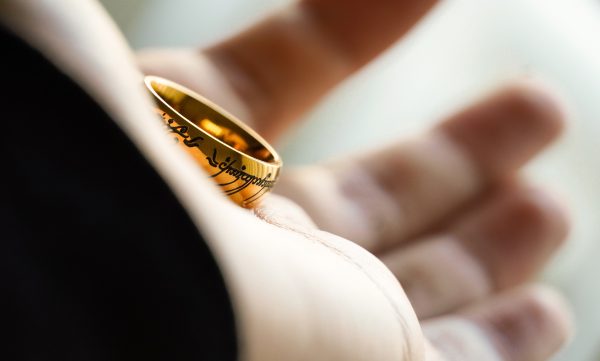The Return of the King (1980, Directed by Arthur Rankin Jr. and Jules Bass)
While the Rankin-Bass adaptation of The Hobbit has its moments, the Rankin-Bass adaptation of Return of the King disappoints. It covers the book’s main plots in a compact form, the animation is decent, and the acting is good. However, the movie takes a large false step by trying to emulate the atmosphere of the studio’s earlier Tolkien film.
Since both are made by the Rankin-Bass company, The Hobbit and The Return of the King fit into the same fictional universe, but have significant tonal differences. Tolkien’s book The Hobbit is very musical—from the singing dwarves at Bilbo’s house to the singing goblins to the singing Rivendell elves. While dark at times, there’s a playfulness throughout making it a children’s fairytale rather than an epic. In contrast, The Return of the King has little music, comedy, or playfulness. It’s a hard, grueling last act of a story where Frodo’s quest often feels like the opposite of Bilbo’s treasure jaunt.
The often-cited point that Tolkien inverted Macbeth’s final plot twist to create the scene of Eowyn killing the Witch-King of Angmar sums up the difference rather well. Like Shakespeare’s Scottish play, The Return of the King is a tale of anger, blood, and feuds. Rankin-Bass’s attempt to lighten things, by adding songs and a children’s animation style (note, for example, the childish-looking Witch-King, who looks like something from a He-Man cartoon), fall flat.
The attempt to take such a dark story and make it something for kids also speaks to a misconception especially common at the time: that all fantasy is kid’s stuff, so a fantasy movie should necessarily be lighthearted.
Come back next week for part 6, where we look at the 1985 Russian adaptation of The Hobbit.
